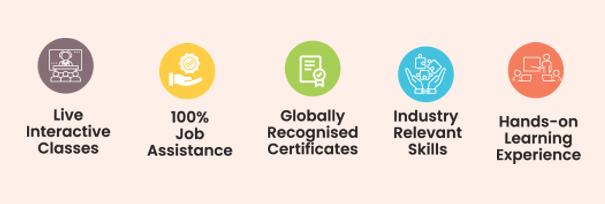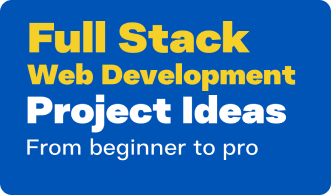Ever wondered how the IT industry in India is reaching new heights while making things easier, faster, simpler and more efficient? Well, that’s the power of platform engineering – where technology meets innovation to empower developers and businesses!
Platform engineering helps developers create user-friendly portals, giving them a wide range of tools and resources which help eploy, test and create applications instantly.
How is it different from the existing technologies?
Platform Engineering is a game-changer. It streamlines the software development tasks, ensures the smooth run of the applications and supercharges developer’s productivity; therefore, the secret behind the success of the rapidly evolving digital age.
Moreover, with the increasing demands of microservices and cloud computing, demand for platform engineering is also increasing, benefitting individuals with increased job opportunities, high-paying salaries and a lucrative chance to explore cutting-edge technologies like automation, microservices and cloud computing.
If you’re keen to know more about the mysteries of platform engineering and discover the secrets of how it is shaping the IT industry in India, the blog below has all the details for you. Scroll down for an interesting learning session!
What is Platform Engineering?
Platform engineering is essential for crafting and maintaining self-sufficient platforms for developers’ ease. Think of it as building a toolbox loaded with the finest tools, which lets developers create, test, and launch applications seamlessly.
Key Principles of Platform Engineering:
- Self-service: Platform engineering allows developers to build, test, and deploy without interacting with any intermediaries.
- Automation: By automating repetitive tasks, platform engineers speed up and streamline the development process.
- Reliability: Platform engineering builds fast and robust platforms that stand against high traffic and frequent changes.
- Scalability: Platform engineering makes process adaption for an organisation easy, ensuring efficiency at all levels.
Platform Engineering vs Traditional Software Development:
- Focus: While traditional developers have to involve extra efforts in developing multiple parts of the applications, platform engineers are occupied with building the core of the applications.
- Audience: Platform engineering caters to developers, whereas traditional development is user-centric.
- Skillset: A platform engineer often works between cloud computing, infrastructure coding, and DevOps, while a traditional developer might only be an expert in a specific programming language.
Key Components of Platform Engineering
Platform engineering combines several essential elements to create a robust and efficient approach to software delivery.
Core Elements:
- Automation: Crucial for accelerating the software lifecycle by automating provisioning, deployment, and testing.
- Infrastructure as Code (IaC): Manages infrastructure using code, ensuring consistency and reducing human errors.
- DevOps: Blends software development and IT operations, promoting streamlined development and delivery processes.
- Cloud Computing: Offers scalable and flexible platforms along with many services, enhancing application reliability and scalability.
Importance in Platform Engineering:
- Automation and IaC are essential, optimising time and enhancing application quality by removing human inefficiencies and errors.
- DevOps speeds up the development process, pushing features to production swiftly and efficiently.
- Cloud Computing is necessary, a versatile platform filled with tools and services to promote application deployment and scalability.
Cloud Computing’s Role:
It’s the backbone, providing services from IaC to CI/CD and monitoring, each aiding in timely deployment, efficient problem resolution, and enhanced application health, making it indispensable in platform engineering.
Benefits of Platform Engineering
Platform Engineering unravels many benefits as an important source for organisations to amplify scalability, boost reliability, and elevate agility in software development endeavours.
It’s one of the essentials in software delivery, propelling developer productivity by eliminating complexities, improving reliability, and driving down costs, working towards the swift and efficient delivery of scalable and reliable software products.
- Scalability: It paves the way for organisations to efficiently scale their operations, owing to the focus on constructing resilient platforms capable of handling voluminous traffic and alterations.
- Reliability: Creating platforms designed for resilience and integrating monitoring tools ensures applications are robust and issues are eliminated, reducing user impact.
- Agility: Offering developers a self-service platform enhances organisational speed, enabling rapid and efficient build-test-deploy cycles, thereby fast-tracking market releases.
Corporate Realities:
Netflix, Amazon, and Google epitomise the profound impact of platform engineering. They leverage it to fuel their varied services, from streaming to e-commerce to multiple online services, demonstrating how it’s indispensable for maintaining infrastructures and deploying innovative features promptly.
Additional Insights:
Platform engineering accelerates software delivery, improves developer productivity by eliminating time spent on not-so-necessary tasks, and cuts costs through automation, leading to the delivery of scalable and innovative software products.
In essence, platform engineering is not just a theoretical concept but a practical approach universally adopted by leading tech giants to stay ahead in the competitive, ever-evolving tech landscape. It’s a transformative methodology essential for any organisation planning for innovation, efficiency, and growth in the software domain.
Challenges And Solutions in Platform Engineering
Implementing platform engineering is caught up with potential challenges, but the resultant benefits are extensive. Here are several challenges and their solutions –
Security Concerns:
- Challenge: Security is required, necessitating stringent measures like encryption and authentication.
- Strategy: Collaborate with security teams to reinforce security measures and educate developers on best practices.
Cultural Shifts:
- Challenge: Initially, transitioning to platform engineering may feel demanding and unsetting for developers, who must adapt to the new control dynamics.
- Strategy: Educate stakeholders on the advantages of platform engineering and provide ample training to make developers informed about new platforms.
Skill Requirements:
- Challenge: Diverse skills in cloud computing, IaC, and DevOps are not always readily available.
- Strategy: Invest in continual learning and in-house training and seek partnerships to bridge the skill gaps.
Additional Considerations:
- Cost & Time: Quality transitions demand investment and patience. While initial costs may seem high, the long-term benefits often justify spending. Also, allow time for the transition, setting realistic milestones.
- Change Management: A transitioning shift like this requires precise planning to prevent potential operational disruptions.
Tips for Successful Adoption:
Start with a narrow scope, secure stakeholder buy-in early, and regularly gauge progress to adapt strategies, ensuring a seamless transition to this innovative approach.
While the journey to platform engineering is filled with challenges, the strategic navigation through these leads to unlocking extensive benefits and achieving scalable, reliable, and innovative software delivery.
Platform Engineering Tools and Technologies
Platform engineering blends innovative software development with a suite of specialised tools and technologies:
- Containerisation:
Containerisation promotes applications and their dependencies within a single unit known as a container. This results in enhanced portability and isolation.
Example: Docker – A dominant containerisation platform that ensures consistent and lightweight applications.
- Orchestration:
Orchestration is all about seamlessly managing multiple containers. It’s crucial for aspects like load balancing and auto-scaling.
Example: Kubernetes – An open-source platform offering various features to manage containerised applications.
- Infrastructure as Code (IaC):
IaC is the modern approach to infrastructure management, where configurations are scripted for consistency.
Example: Terraform – Using a declarative language, it standardises infrastructure setup across various cloud platforms.
Other Noteworthy Tools:
- Ansible and Chef: Central for configuration management, they automate and standardise server and software configurations.
- Prometheus: A monitoring tool collecting crucial metrics from applications and infrastructure.- Grafana: Pairs with Prometheus to visualise data metrics understandably.
- Jaeger: Invaluable for tracing the trajectory of requests across multiple services, ensuring all components are in harmony.
These tools improves the robust technological aspects available to platform engineers, helping in delivering scalable, efficient, and reliable software products.
Career Opportunities in Platform Engineering
The tech world is buzzing, and platform engineering stands at its core. According to Allied Market Research report, a whopping 24.2% growth rate is expected in this domain over the next decade. Why? The ever-growing love for cloud computing and streamlined software delivery.
India isn’t lagging. With a 50% increase in job listings on Naukri.com, it’s clear that companies are eager for talent. A platform engineer in India can expect an average annual package of around ₹12 lakhs.
Diving Deep into Platform Engineering Roles:
- Platform Engineer: The architects behind tech platforms. They devise, implement, and maintain platforms, ensuring other developers have a robust foundation for application deployment.
- SRE (Site Reliability Engineer): They’re the platform’s guardians, ensuring smooth functioning. Their goal is consistent uptime and reliability, from monitoring system health to troubleshooting.
- DevOps Engineer: A DevOps engineer bridges the gap between operations and development, automating the software to ensure quick and efficient deployment.
- Cloud Engineer: The employees are responsible for designing, managing and building the application in a cloud system, working for scalable and efficient solutions.
- The roles’ range and attractive pay scales signify a promising horizon for aspiring engineers.
Grras Solutions, a renowned IT institute with courses led and curated and led by experienced industry experts, is dedicated to empowering individuals with profound knowledge and skillset in platform engineering, guiding them through the complexities of this transformative field.
Connect with our experts now to know more!






